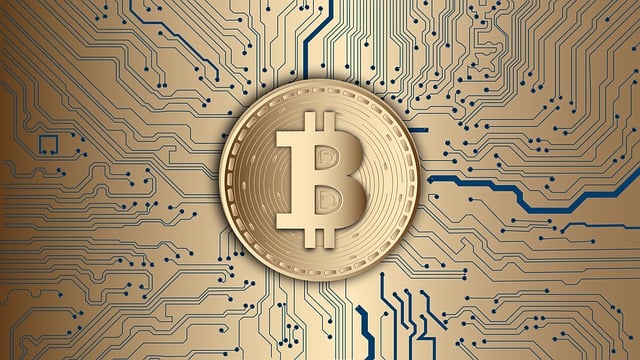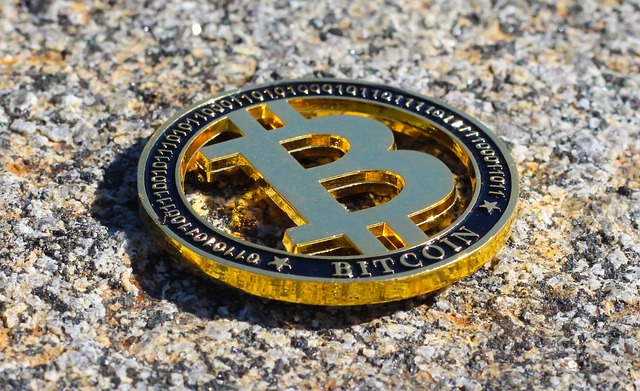Decentralized Finance (DeFi) platforms, powered by blockchain and smart contracts, are revolutionizing lending by eliminating banks as intermediaries. This enables direct peer-to-peer interactions, offering better interest rates, global accessibility, and democratization of finance. Crypto's impact on traditional banking challenges established models, fostering innovation that enhances transparency, lowers fees, increases privacy, and promotes inclusivity. However, DeFi faces regulatory hurdles, with global bodies collaborating to define guidelines for its borderless operations, balancing decentralization and regulation as it evolves. The future promises enhanced security, cross-border opportunities, and a more inclusive global financial landscape.
“Unraveling the Revolution: Exploring Decentralized Finance (DeFi) Lending Platforms and Their Impact on Traditional Banking
In the rapidly evolving financial landscape, decentralized finance (DeFi) is emerging as a game-changer. This article delves into the world of DeFi lending platforms, offering an alternative to conventional banking. We’ll explore how crypto’s impact on traditional banking systems has led to innovative lending models, with benefits like higher interest rates and transparency. Understanding the underlying technologies and mechanisms is key to comprehending this paradigm shift. Additionally, we’ll analyze regulatory challenges and predict the future of DeFi lending.”
- Understanding Decentralized Finance (DeFi) Lending Platforms
- How Crypto Impacts Traditional Banking Systems
- Benefits of DeFi Lending Over Conventional Banks
- The Mechanisms and Technologies Behind DeFi Lending
- Regulatory Challenges and Considerations in the DeFi Space
- The Future of DeFi Lending: Opportunities and Predictions
Understanding Decentralized Finance (DeFi) Lending Platforms

Decentralized Finance (DeFi) lending platforms are revolutionizing the way financial services are delivered, marking a significant shift from traditional banking models. Unlike centralized banks, DeFi platforms operate on blockchain technology, creating a transparent and accessible system for borrowers and lenders alike. The impact of crypto on traditional banking is profound, as it eliminates the need for intermediaries like banks, allowing direct peer-to-peer interactions.
These platforms utilize smart contracts to automate lending processes, ensuring secure and efficient transactions. Borrowers can access funds by staking their cryptocurrency as collateral, while lenders earn rewards by providing liquidity. This innovative approach democratizes finance, offering individuals more control over their assets and potentially providing better interest rates compared to traditional loans. The crypto-driven nature of DeFi also enables global accessibility, breaking down geographical barriers in the banking sector.
How Crypto Impacts Traditional Banking Systems

The rise of cryptocurrency and decentralized finance (DeFi) is significantly reshaping traditional banking systems. Crypto has introduced innovative financial services, such as peer-to-peer lending and borrowing, that bypass many of the intermediaries and strict processes associated with conventional banks. This disrupts the status quo by offering greater accessibility to financial products for individuals who might be excluded from or dissatisfied with traditional banking options.
Moreover, blockchain technology, the underlying infrastructure of cryptocurrencies, enhances transparency and security in transactions. Smart contracts automate loan agreements, reducing the need for intermediaries and lowering costs. As a result, DeFi platforms can offer competitive interest rates and flexible terms, compelling both borrowers and lenders to explore these new digital avenues. The impact of crypto on traditional banking is profound, challenging established models and paving the way for a more inclusive, efficient, and transparent financial landscape.
Benefits of DeFi Lending Over Conventional Banks

Decentralized finance (DeFi) lending platforms offer a radical alternative to conventional banks, leveraging blockchain technology and cryptocurrencies to provide financial services in a more transparent and accessible manner. Unlike traditional banking systems, where intermediaries control access to credit and charge various fees, DeFi platforms enable peer-to-peer lending directly between users, eliminating the need for middlemen. This democratization of finance has several compelling benefits.
Firstly, DeFi lending often provides higher interest rates for borrowers, as funds are lent directly from investors who are seeking a return on their crypto assets. Secondly, it offers greater accessibility and inclusivity; anyone with an internet connection can participate, regardless of location or credit history, as opposed to the stringent requirements often imposed by traditional banks. The impact of crypto on traditional banking challenges the status quo, fostering innovation and potentially disrupting established financial models in a positive direction.
The Mechanisms and Technologies Behind DeFi Lending

Decentralized finance (DeFi) lending platforms are revolutionizing the way financial services are delivered, significantly challenging the impact of crypto on traditional banking. At the heart of DeFi lending lies blockchain technology, which enables secure and transparent transactions without the need for intermediaries like banks. Smart contracts, self-executing agreements with the terms of the deal directly written into code, automate the loan process, ensuring fairness and efficiency.
These platforms leverage decentralized applications (dApps) that operate on a peer-to-peer basis, allowing users to borrow and lend cryptocurrencies directly from one another. The use of crypto assets as collateral further enhances accessibility and liquidity. By removing traditional banking regulations and middlemen, DeFi lending offers lower fees, increased privacy, and greater control to users, fostering a more inclusive financial ecosystem.
Regulatory Challenges and Considerations in the DeFi Space

The decentralized finance (DeFi) space has witnessed rapid growth, driven in part by the impact of crypto on traditional banking systems. However, this innovative lending platform faces significant regulatory challenges that require careful consideration. As DeFi platforms operate outside the scope of conventional financial regulations, they introduce novel risks related to consumer protection, market integrity, and money laundering. Regulatory bodies worldwide are grappling with how best to oversee these platforms to mitigate potential harms while preserving their benefits.
One key challenge is defining jurisdiction and establishing clear guidelines for compliance. Since DeFi lending occurs across borders, regulatory authorities must collaborate to create a cohesive framework. Additionally, the lack of centralized control in DeFi necessitates innovative solutions for risk management and oversight, such as enhanced transparency mechanisms and smart contract audits. Balancing the need for regulation with the decentralized nature of crypto is an ongoing process that will shape the future of both traditional banking and the impact it has on the ever-evolving DeFi landscape.
The Future of DeFi Lending: Opportunities and Predictions

The future of DeFi lending holds immense potential, reshaping the financial landscape as we know it. With the profound impact of crypto on traditional banking, decentralized finance platforms are poised to disrupt and democratize lending processes. These innovative systems offer a range of opportunities, from increased accessibility for borrowers with limited credit history or no collateral to competitive interest rates for lenders. By removing intermediaries, DeFi lending platforms can facilitate peer-to-peer transactions, fostering a more inclusive and efficient financial ecosystem.
Predictably, the evolution of DeFi lending will further blur the lines between traditional banking and cryptocurrency. We can anticipate enhanced security measures through blockchain technology, ensuring transparency and immutability in loan agreements. Additionally, the integration of artificial intelligence may streamline risk assessment, allowing for more accurate predictions and tailored lending solutions. As DeFi continues to mature, we are likely to see a surge in cross-border lending opportunities, bridging financial gaps worldwide.
Decentralized finance (DeFi) lending platforms are transforming the way we interact with financial services, offering a significant alternative to conventional banks. The impact of crypto on traditional banking systems is undeniable, with DeFi leveraging blockchain technology to provide more accessible, transparent, and efficient lending solutions. By embracing the mechanisms and technologies behind DeFi, such as smart contracts and decentralized networks, these platforms offer numerous benefits, including lower fees, increased accessibility, and faster transactions. However, regulatory challenges must be addressed to ensure consumer protection and market stability. Looking ahead, the future of DeFi lending is promising, with predictions suggesting further integration into mainstream finance and the potential to revolutionize global economic participation.
